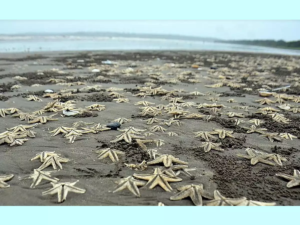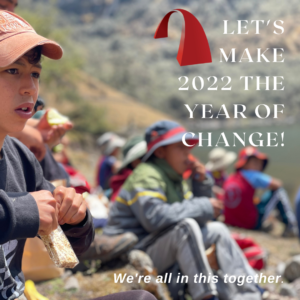Throwing Starfish – wayne centrone
 I bet you’ve heard some version of the Loren Eiseley short story about the old man and the starfish on the beach. You know the one . . . okay, in case you don’t, let me start with an adaptation of the story –
I bet you’ve heard some version of the Loren Eiseley short story about the old man and the starfish on the beach. You know the one . . . okay, in case you don’t, let me start with an adaptation of the story –
Once upon a time, an old man used to go to the beach every morning. He had a habit of walking on the sand every day. One morning, he walked along the shore after a big storm had passed and found the beach littered with starfish in vast directions. So many starfish, it was almost overwhelming.
Off in the distance, he noticed a boy walking along and pausing every so often to bend down and pick up an object and throw it into the water. As the boy got closer and the man called out and inquired what the boy was doing. “Hi, good morning! Can I ask, what are you doing?,” the old man said.
As the story goes, the boy paused, looked up, and replied, “Throwing starfish into the ocean. The tide has washed them up onto the beach, and they can’t return to the water on their own,” the child replied. “He went on to say – “when the sun gets high, they will die unless I throw them back into the water.”
The old man replied to the child with astonishment, “But there must be tens of thousands of starfish. You won’t be able to make much of a difference.”
To this statement, the boy bent down, picked up yet another starfish, and threw it as far as he could into the ocean. Then he turned, smiled, and as he walked away, said, “It made a difference to that one!”
Great story, right? I just don’t know. I felt an urge to push back on the story for the longest time. To say we can’t settle for such low expectations. We need to do more. We need to help more. I still feel that way. Then something happens to remind me – to nudge me back. Yesterday I had two such experiences.
While out on my morning run, I passed a young man sitting in a guard shack in a wealthy neighborhood. He and I made brief eye contact through our masked-covered faces. He looked despondent. I’m not sure why, but I stopped running and went over to talk with him. He was from Venezuela. He came to Perú to find a better life. He told me about the challenges and struggles he faced every day. He talked about the feelings of humiliation in not knowing where his next meal would come from. He confided that every job he could find wanted to pay him only a portion of what they pay Peruvian laborers. He told me of his dream to start a business with his father one day. His story really hit me. While I was talking to this young man about the same time, I was aware that a dear friend was with his dying father thousands of miles away, back in Portland. It suddenly struck me when one life ends, another begins. I ran back to the hotel and grabbed some money. I went back to the young man and said I wanted to make an investment in his business. I told him about my dear friend’s father and that the investment was in honor of his life. He cried. We both did.
Later that day, while returning on a bike ride with the boys from the Casa Girasoles, we passed a young man walking on the side of the road. He caught my attention, if for nothing else because he looked too young to be by himself walking with a backpack and dirty clothes. Once we got the boys back to the house, I asked the director of the Girasoles program to ride around with me to check on the young man. He was not a day over 14. He told us he had walked from Lima. The director felt he was on drugs. I told him I thought the young man was having a psychotic break. In any event, he wanted nothing to do with us. I asked if we could at least buy him some food and water. He reluctantly said yes, but cautiously stayed a reasonable distance away from us. Once we got him some food and a big water bottle, he said he needed to leave and walked away. Back at the Casa Girasoles, we called the Peruvian equivalent of child protective services. The officer told us they would send the police to check on the young man – but he said there was little they could do if he was on drugs or had a mental illness. I asked the director if there was anything we could do. He said it was really hard, but the answer was no. He said that the police would likely pick up the boy and immediately call us [the Casa Girasoles] and ask if we could take in the young man. He went on to say that without a unique facility or qualified staff, it is tough to bring a young person with mental health and substance use challenges into the home. He told me the system just wasn’t prepared to handle the needs of such children. I felt devastated.
This is hard work. I am reminded every day, there are no simple solutions. I am, however, also reminded that it does not mean we shouldn’t try to help. We are trying to make a difference in the lives of the children we are called to serve – and build the models and framework that will one day prevent child abandonment and fractured families. Sometimes I just need to remind myself that we need to do both simultaneously.


